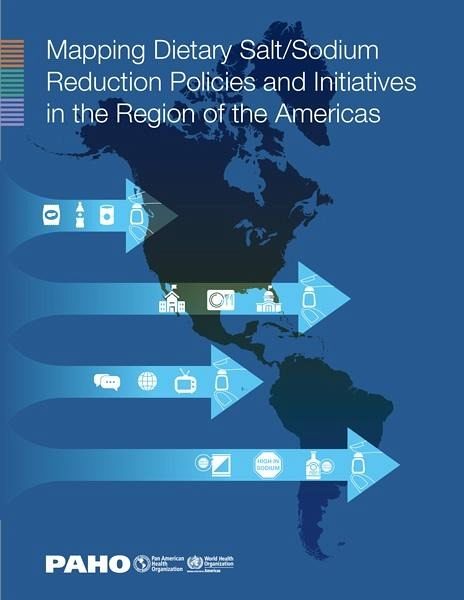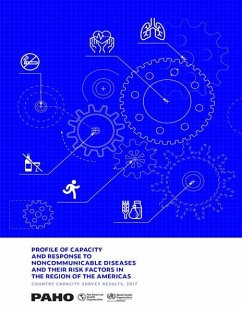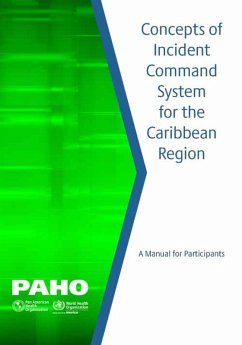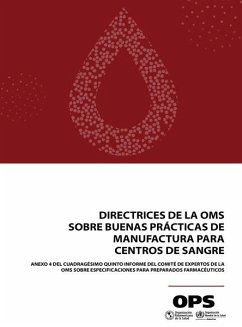
Mapping dietary salt/sodium reduction policies and initiatives in the Region of the Americas (eBook, PDF)
Versandkostenfrei!
Sofort per Download lieferbar
40,95 €
inkl. MwSt.
Weitere Ausgaben:

PAYBACK Punkte
20 °P sammeln!
The aim of this study was to map existing country policies and initiatives addressing population dietary sodium reduction in the Region of the Americas; to identify policy gaps following what is outlined in the World Health Organization (WHO) "e;Best Buys"e; most cost-effective recommendations for the prevention and control of diet-related noncommunicable diseases (NCDs); and to discuss priorities for future work to reduce population salt/sodium intake.We analyzed data from 34 countries in the Region. A review of different databases informed the mapping. Databases included (1) response...
The aim of this study was to map existing country policies and initiatives addressing population dietary sodium reduction in the Region of the Americas; to identify policy gaps following what is outlined in the World Health Organization (WHO) "e;Best Buys"e; most cost-effective recommendations for the prevention and control of diet-related noncommunicable diseases (NCDs); and to discuss priorities for future work to reduce population salt/sodium intake.We analyzed data from 34 countries in the Region. A review of different databases informed the mapping. Databases included (1) responses from the online Survey on National Initiatives for Salt/Sodium Reduction in the Americas carried out by PAHO in 2016; (2) the databases from the 2017 and 2019 PAHO Country Capacity Surveys for NCDs and Risk Factors; and (3) the repositories of legislation of the PAHO REGULA initiative as of 2018. Research in these databases was complemented by electronic searches on official websites from the ministries of health, education, and agriculture and the library of the national congress in each country. Additionally, when available, government regulatory gazettes were reviewed.National policies that have adopted the most cost-effective interventions for preventing and controlling diet-related NCDs of WHO "e;Best Buys"e; included reformulating food products with both voluntary (n=11/34) and mandatory (n=2/34) targets; establishing a supportive environment in public institutions (n=13/34); consumer awareness programs (n=26/34) and behavior-change communication and mass media campaigns (n=(0/34); and implementing front-of-pack labeling (n=5/34). We also found that some countries have implemented regulations that restrict marketing of foods high in salt/sodium to children (n=5/34), or are using nutritional labeling that includes sodium content, either voluntary (n=9/34) or mandatory (n=10/34). However, no country in the Region has implemented taxes on high salt/sodium foods.Based on our review, we concluded that there has been a significant advance in policies to reduce sodium intake in the Region of the Americas in recent years. However, we identified that the level of implementation is quite varied and is challenging to assess. Despite the progress, there remains much work to do on this issue, especially in countries where there is limited or no action yet.Reducing sodium consumption is a cost-effective intervention that can save many lives by preventing and reducing the burden of diet-related NCDs. Therefore, a further call to action is needed for governments to accelerate efforts to meet the 2025 global target of a 30% relative reduction in mean population intake of sodium.
Dieser Download kann aus rechtlichen Gründen nur mit Rechnungsadresse in A, B, BG, CY, CZ, D, DK, EW, E, FIN, F, GR, HR, H, IRL, I, LT, L, LR, M, NL, PL, P, R, S, SLO, SK ausgeliefert werden.













